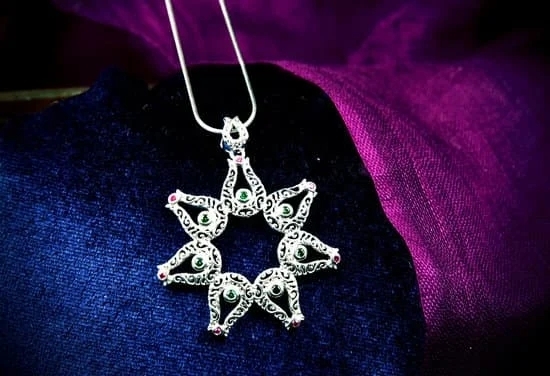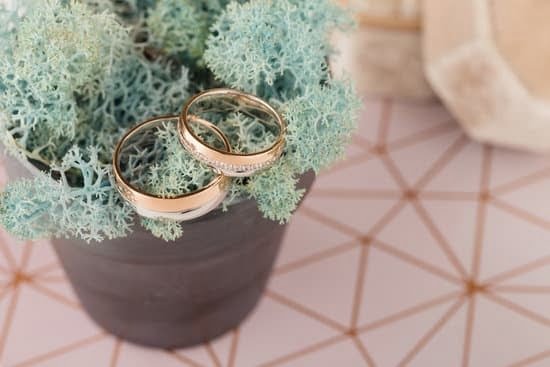Why are shoe and fine jewelry departments often leased? In the world of retail, leased departments play a significant role in offering customers a diverse range of products and experiences. When it comes to luxury items such as fine jewelry and designer shoes, the decision to lease these departments is driven by various factors, including the allure of luxury, exclusive partnerships, high-profit margins, enhanced customer experience, brand representation, expertise, and curation.
Leased departments in retail refer to specific sections within a store that are operated by an outside vendor or brand rather than the store itself. These vendors lease the space from the retailer and are responsible for managing their inventory, employees, and overall operations within that designated area.
In the case of shoe and fine jewelry departments, this leasing arrangement allows retailers to offer a wider selection of high-end products without having to invest heavily in purchasing and managing these items themselves.
The allure of luxury plays a significant role in why shoe and fine jewelry departments are often leased in retail settings. These items hold a certain prestige and appeal that can elevate the overall image of a store.
By carrying luxury brands and designer items, retailers can attract a higher-end clientele while also creating an upscale atmosphere within their establishment. This aligns with the broader strategy many retailers have when it comes to offering a premium shopping experience for their customers.
The Allure of Luxury
Luxury items such as fine jewelry and designer shoes have a magnetic appeal that extends beyond their functional purpose. For many consumers, these high-end products symbolize status, elegance, and exclusivity. As a result, retail stores often strive to incorporate luxury departments into their offerings in order to attract discerning clientele and enhance their overall brand image.
The presence of shoe and fine jewelry departments within a retail store adds an undeniable allure of luxury to the establishment. When customers browse through a selection of exquisite diamond necklaces or Italian leather shoes, they are immersed in an environment of opulence and sophistication. This experience not only elevates the prestige of the retail store but also creates an aspirational atmosphere that resonates with affluent shoppers.
Retailers understand that by leasing department space to top-tier jewelry and shoe brands, they can tap into the inherent allure of luxury goods. These exclusive partnerships allow them to showcase renowned designers and offer customers access to coveted merchandise that may be otherwise difficult to find. By providing a platform for these high-end products, retail stores position themselves as destinations for luxury shopping, thereby attracting a clientele seeking unparalleled quality and craftsmanship in their purchases.
Furthermore, the presence of luxury departments within a retail store serves as a visual representation of the establishment’s dedication to offering top-tier products. The carefully curated selection of fine jewelry pieces or designer shoes reflects the retailer’s commitment to delivering excellence and catering to the sophisticated tastes of their clientele.
In essence, leased shoe and fine jewelry departments serve as a testament to the retailer’s understanding of the allure of luxury items and their ability to provide an elevated shopping experience.
Exclusive Partnerships
When it comes to leased departments in retail, exclusive partnerships play a crucial role in the success and appeal of luxury shoe and fine jewelry departments. These collaborations between retail stores and top shoe and jewelry brands are not only beneficial for the brand’s visibility but also contribute to the overall prestige of the retail establishment.
Benefit for the Brand
For luxury shoe and fine jewelry brands, having a leased department within a reputable retail store provides an unparalleled level of exposure and brand representation. It allows them to showcase their latest collections in an environment that aligns with their brand image. Exclusive partnerships with well-known retailers also lend credibility to these brands, allowing them to reach a wider audience of potential customers who may not visit standalone boutiques.
Benefit for the Retail Store
On the other hand, retail stores benefit from these exclusive partnerships by offering their clientele access to renowned shoe and jewelry brands that may not be available elsewhere. This sets them apart from competitors and enhances their overall reputation as a destination for luxury shopping. Moreover, these partnerships can attract a higher-end clientele whose patronage contributes to increased sales across the entire retail establishment.
Overall, exclusive partnerships play a pivotal role in why shoe and fine jewelry departments are often leased within retail stores. The mutual benefits for both the brand and the retailer make these collaborations an attractive option for showcasing luxury items while elevating the overall shopping experience for customers.
High-Profit Margins
For retailers, leased shoe and fine jewelry departments offer the opportunity to increase their overall revenue through these high-profit margins. By partnering with luxury brands and providing a dedicated space within their store, retailers can attract customers who are willing to spend more on these premium items. Additionally, elevated profit margins from these departments can offset lower margins in other areas of the store, contributing to the overall financial health of the business.
From a brand perspective, leasing departments in retail stores provides exposure to a wider customer base without having to invest in standalone locations. This exposure is especially valuable for up-and-coming luxury brands looking to establish their presence in the market. Furthermore, by having their products featured in reputable retail environments, these brands can enhance their perceived value and desirability among consumers.
| Scenario | Contribution to Revenue |
|---|---|
| Increased Foot Traffic | Retailer: Higher sales across all departments; Brand: Greater visibility and potential new customers |
| Elevated Sales of High-Profit Margin Items | Retailer: Higher average transaction value; Brand: Enhanced revenue from premium products |
| Brand Recognition Through Association with Retailer | Retailer: Attraction of higher-end clientele; Brand: Strengthened brand image and prestige |
Enhanced Customer Experience
Shoe and fine jewelry departments are often leased in retail stores for a variety of reasons, all of which ultimately contribute to enhancing the customer experience. Here are some key factors to consider:
1. Exclusive access to luxury items: Leased shoe and fine jewelry departments offer customers access to high-end, prestigious brands that may not be readily available in other retail environments. This exclusivity creates a sense of privilege and special treatment for shoppers who seek luxury items.
2. Expert guidance and assistance: With leased departments, customers can benefit from the expertise of dedicated staff who are knowledgeable about the specific intricacies of luxury shoes and jewelry. This level of personalized service enhances the overall shopping experience, as customers feel well-informed and supported in their purchasing decisions.
3. Immersive and aspirational environment: Leased shoe and fine jewelry departments create an immersive atmosphere that aligns with the aspirational nature of these luxury goods. The carefully curated displays, elegant showcases, and overall ambiance of these departments contribute to a heightened sense of elegance and sophistication for customers.
In summary, leased shoe and fine jewelry departments serve as a cornerstone for creating an enhanced customer experience within retail stores. From providing exclusive access to luxury items to offering expert guidance and curating an aspirational shopping environment, these departments play a crucial role in attracting and retaining a high-end clientele. As consumer preferences continue to evolve, it is likely that future developments in how these departments are managed will further prioritize the customer’s overall shopping experience.
Brand Representation
Luxury shoe and jewelry brands often choose to lease departments within retail stores as a strategic method of brand representation. By showcasing their products in a dedicated space within a reputable retail environment, these brands can effectively strengthen their brand presence and increase visibility among target consumers. This approach allows them to align themselves with the overall image and reputation of the retail store, further enhancing their brand recognition and status in the eyes of potential customers.
Here are some reasons why luxury shoe and jewelry brands opt for leasing departments within retail stores:
- Exposure: Leasing a department within a well-established retail store provides luxury brands with significant exposure to a wider customer base. As customers browse through the store, they are more likely to encounter and engage with the brand’s products, thereby increasing brand awareness.
- Brand association: Association with a respected retail establishment can significantly elevate the perceived value and prestige of luxury brands. The luxurious setting of the leased departments reflects positively on the brand’s image, reinforcing its reputation for exclusivity and quality.
- Access to affluent clientele: Retail stores that lease shoe and fine jewelry departments often cater to an upscale clientele. Luxury brands recognize this as an opportunity to connect with affluent consumers who frequent these establishments in search of high-end products, thus increasing their customer base.
Expertise and Curation
Leased shoe and fine jewelry departments offer more than just a space for brands to showcase their products. One of the key reasons why these departments are often leased is the specialized knowledge and curation expertise that comes with them.
In the case of fine jewelry, trained professionals with in-depth knowledge of gemstones, metals, and craftsmanship are essential for providing customers with accurate information and guidance. Similarly, in the world of designer shoes, having staff members who understand the intricacies of fit, design, and materials is crucial in delivering a high-quality shopping experience.
The presence of dedicated and knowledgeable staff in leased shoe and jewelry departments adds significant value to the overall customer experience. This expertise can be a major draw for customers seeking personalized assistance or advice when making substantial purchases. Furthermore, it aligns with the luxury status of these products, as clients often expect a certain level of service and expertise when investing in fine jewelry or high-end footwear.
At the same time, retailers benefit from leasing these departments by gaining access to the brand’s expertise and resources. By partnering with renowned jewelry or shoe companies, they can leverage the brand’s training programs, product knowledge materials, and industry insights to enhance their own staff’s expertise. This can elevate the overall standard of service across the store, creating a positive ripple effect on customer satisfaction and loyalty.
| Benefit | Description |
|---|---|
| Specialized Knowledge | Dedicated staff with expert knowledge enhances customer’s shopping experience |
| Enhanced Service Levels | High-end items like fine jewelry demand a certain level of expertise from retail staff. |
| New Resources |
Future Trends and Developments
In conclusion, the leasing of shoe and fine jewelry departments in retail stores provides a multitude of benefits for both the brands and the retailers. This business model allows luxury brands to showcase their products in a prestigious retail environment while also benefiting from the specialized knowledge and curation expertise that comes with leasing these departments. For retailers, leased departments offer the potential for high-profit margins and an enhanced customer experience, attracting a higher-end clientele.
As consumer preferences and shopping behaviors continue to evolve, the future of leased shoe and jewelry departments in the retail industry is likely to see innovative trends and developments. With advancements in technology, we may see more virtual try-on experiences for shoes and digital jewelry consultations, enhancing the online presence of these luxury departments. Additionally, there may be an increased focus on sustainability and ethical sourcing within these departments as consumers become more conscious of their purchasing decisions.
Overall, leased shoe and fine jewelry departments play a crucial role in representing luxury brands within a retail environment while offering retailers profitable opportunities. As the retail industry continues to adapt to changing trends and consumer demands, it is clear that these departments will remain an essential element of high-end retail spaces in the years to come.
So this is why shoe and fine jewelry departments are often leased – they provide unique value to both brands and retailers within the ever-evolving landscape of luxury retail.
Frequently Asked Questions
How Do Changes in Lifestyles and Activities Affect the Shoe Industry?
Changes in lifestyles and activities can have a significant impact on the shoe industry. For example, the shift towards more casual and athleisure wear has increased the demand for comfortable, stylish sneakers and athletic shoes.
Additionally, the rise of remote work and virtual meetings has led to a decreased need for formal footwear, impacting sales of dress shoes and high heels. Overall, shifts in consumer preferences and behaviors directly influence the types of shoes that are in demand, which in turn affects the production, marketing, and sales strategies of shoe companies.
Which Company Has the Highest Market Share in the US Intimate Apparel Industry?
In the US intimate apparel industry, Victoria’s Secret has historically held the highest market share. However, in recent years, the company has faced challenges due to changing consumer preferences and increased competition from direct-to-consumer brands and inclusive lingerie companies.
As a result, Victoria’s Secret’s market share has declined while other brands such as Aerie (owned by American Eagle) and ThirdLove have been gaining traction.
What Is the Problem With the Shoe Industry?
The shoe industry faces several problems, including overproduction leading to excess inventory, environmental concerns related to materials and manufacturing processes, as well as ethical issues surrounding labor practices in some parts of the world where shoes are produced. Additionally, there is a growing demand for sustainable footwear options from consumers that some companies are struggling to meet.
These challenges require the industry to adapt by implementing more sustainable practices and addressing ethical issues within their supply chains.

Welcome to my jewelry blog! My name is Sarah and I am the owner of this blog.
I love making jewelry and sharing my creations with others.
So whether you’re someone who loves wearing jewelry yourself or simply enjoys learning about it, be sure to check out my blog for insightful posts on everything related to this exciting topic!





